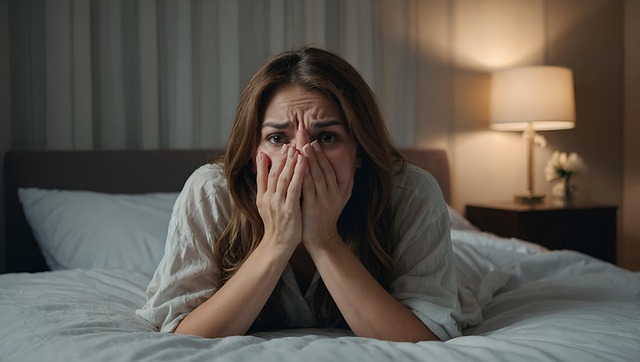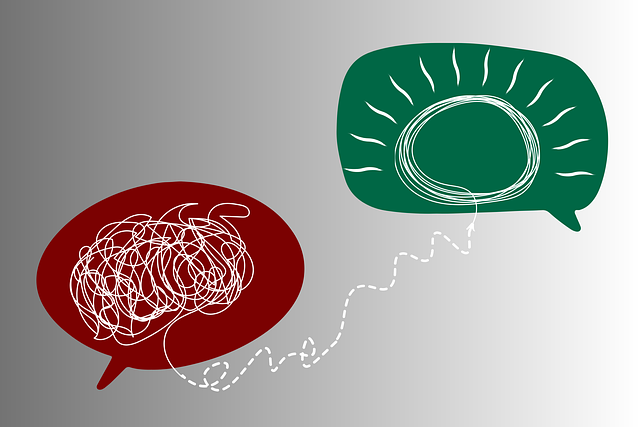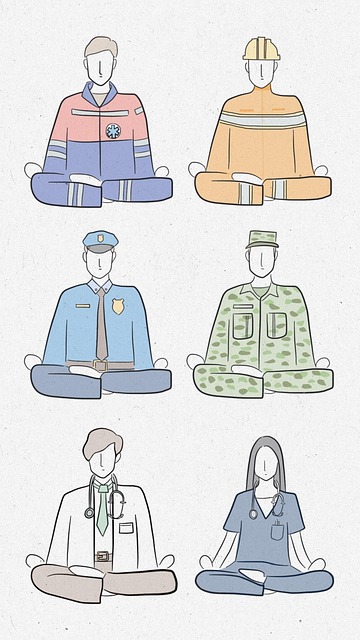Anxiety among the elderly is a significant issue driven by age-related challenges such as physical health decline, cognitive changes, and social isolation. Common manifestations include generalized anxiety, panic attacks, and social phobia, leading to avoidance of daily activities and withdrawal from social interactions. Effective therapy for elders with anxiety involves tailored trauma support services, risk management planning, and positive thinking exercises like guided meditation and cognitive reframing. These practices enhance mental resilience, reduce stress, and improve coping mechanisms, benefiting both elderly individuals and healthcare providers by preventing burnout and fostering overall well-being, specifically targeting Therapy for Elders Anxiety.
Positive thinking exercises have emerged as a powerful tool for therapy for elders anxiety, offering a proactive approach to enhance mental well-being among seniors. This article delves into the intricate relationship between elderly anxiety, its causes, and the profound impact it has on daily life. We explore the transformative potential of positive thinking as a game-changer in managing anxiety. Through understanding its power, we’ll guide you through designing effective exercises and integrating positive thinking into elders’ daily routines to foster resilience and improve their overall quality of life.
- Understanding Elderly Anxiety: Causes and Impact
- The Power of Positive Thinking: A Transformative Tool
- Designing Effective Positive Thinking Exercises
- Integrating and Sustaining Positive Thinking in Daily Life
Understanding Elderly Anxiety: Causes and Impact

Anxiety among the elderly is a prevalent issue that requires understanding and effective intervention strategies. As individuals age, they may face various challenges that contribute to heightened anxiety levels, such as physical health decline, cognitive changes, and social isolation. These factors can create a sense of vulnerability and fear, impacting their overall well-being and quality of life. For instance, concerns about losing independence or dealing with chronic illnesses can trigger anxious thoughts and behaviors.
Recognizing the causes of elderly anxiety is crucial for providing appropriate therapy for elders’ anxiety. It often manifests as generalized anxiety, panic attacks, or social phobia. The impact can be severe, leading to avoidance of daily activities, withdrawal from social interactions, and even increased risk of depression. Trauma support services can play a vital role in addressing these issues. By incorporating strategies tailored to their needs, risk management planning for mental health professionals can assist seniors in building inner strength development, helping them manage anxiety effectively and improve their overall mental resilience.
The Power of Positive Thinking: A Transformative Tool

Positive thinking exercises have emerged as a powerful tool for enhancing mental wellness and offering anxiety relief, particularly relevant in addressing the unique challenges faced by elders. In today’s fast-paced world, where stress and burnout are prevalent among healthcare providers caring for older adults, these practices can serve as effective burnout prevention strategies. By cultivating a positive mindset, individuals can transform their perception of stressful situations, leading to improved coping mechanisms and overall well-being.
This simple yet profound approach has the potential to revolutionize how we manage mental health concerns. For elders experiencing anxiety or seeking therapy for their psychological well-being, positive thinking exercises provide a gentle and accessible method to foster resilience. It encourages individuals to challenge negative thoughts, replacing them with more constructive and hopeful perspectives, which can lead to significant improvements in quality of life.
Designing Effective Positive Thinking Exercises

Designing Effective Positive Thinking Exercises involves tailoring activities that cater to the unique needs and capabilities of elders, especially those facing anxiety issues. Therapy for Elders Anxiety requires approaches that are both gentle and impactful. Simple practices like guided meditation, where participants focus on their breath and positive affirmations, can significantly improve mood management. These exercises should be incorporated into daily routines to foster a sense of calm and reduce stress levels.
Additionally, Burnout Prevention Strategies for Healthcare Providers can benefit from incorporating crisis intervention guidance within these exercises. Techniques such as cognitive reframing, where negative thoughts are challenged and replaced with positive ones, have been effective in helping elders navigate anxious episodes. Regular implementation of these strategies not only aids in anxiety management but also contributes to the overall well-being of elderly individuals, ensuring they remain resilient in the face of daily challenges.
Integrating and Sustaining Positive Thinking in Daily Life

Integrating positive thinking into daily routines is a powerful tool for maintaining mental well-being, especially for older adults dealing with anxiety. It involves cultivating a mindset that focuses on optimism and gratitude, which can be enhanced through regular practice. Simple techniques like keeping a gratitude journal or engaging in positive self-talk can help individuals reframe negative thoughts and experiences, fostering a sense of calm and resilience over time.
For mental health professionals, incorporating these practices into their risk management planning is essential for burnout prevention. By prioritizing positive thinking exercises, they can enhance their clients’ coping strategies and reduce the impact of anxiety. This approach aligns with the broader goal of mental health support, focusing on proactive solutions to manage and alleviate anxiety, ultimately contributing to improved overall well-being.
Positive thinking exercises offer a promising therapy for elders anxiety, providing a simple yet powerful tool to enhance well-being. By understanding the causes and impact of elderly anxiety, we can design effective exercises that promote a more optimistic outlook. Integrating these practices into daily routines allows individuals to cultivate resilience and improve their overall quality of life. With dedicated practice, positive thinking can become a lasting habit, empowering elders to navigate life’s challenges with greater ease.









